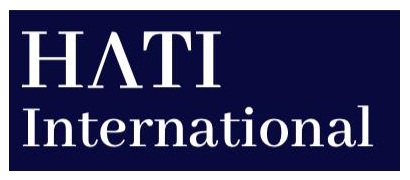Here Is How Predictive Analytics Can Improve Healthcare
Is technology worth anything if it does not solve an important problem or save lives?
The healthcare industry has been keen to look towards technology to improve care and better hospital outcomes. Over the past couple of years, given the immense and tangible benefits new technology has been presenting, healthcare institutions have been coerced to jump on the technology bandwagon. New technologies such as cloud computing and big data have found their designated place in this industry and are being used efficiently across the continuum of care right from hospital management to disease management.
One such technology, predictive analytics, is gradually gaining momentum in the healthcare industry. Predictive analytics, it is being said, is going to redefine healthcare delivery using advanced analytics based on historical data, data patterns and other associated inputs to help healthcare delivery professionals and administrators identify future risks and opportunities. This blog looks at a few areas where predictive analytics can be employed to improve healthcare outcomes.
Increase diagnosis accuracy to improve patient outcomes
Predictive analytics employs statistical algorithms and technology to sift through massive volumes of data to present predictive outcomes. It analysis past data in conjunction with latest medical research to reveal surprising revelations that human brains would never really suspect. From predicting the risk of infections to determining the likelihood of diseases, predictive analytics can be a formidable weapon in the hands of healthcare professionals. Using predictive algorithms, physicians can make more accurate diagnosis. These predictive algorithms can assist the doctor’s diagnosis to ascertain if a patient is fit to be discharged, the likelihood of disease, and even predicting future wellness. It can help doctors take quantified steps to increase diagnostic accuracy and consequently improve patient outcomes.
Aid preventive medicine
Predictive analytics can be used to evaluate huge volumes of data to extract valuable information. It helps in establishing relationships between variables and associations between past treatments, patient data, and latest medical research to facilitate preventive medicine. Early predictions can help contain the severity of diseases, assist in identifying at-risk patients (especially in the area of genomics), and help doctors assist patients in identifying what they need to do to improve their health. With early intervention, a number of diseases such as heart disease, diabetes etc. can be prevented and even managed better. Using predictive analytics for preventive medicine becomes all the more relevant today since population disease patterns have evolved and changed dramatically. By employing preventive medicine, doctors can identify ways in which they can focus on preventing a disease and even outbreaks and not be just consumed by sick-care. It, thus, plays a significant role in facilitating the shift towards well-being.
Enable evidence-based medicine
Evidence-based medicine is a hot topic in the healthcare industry today. Doctors and healthcare enablers are leaning in towards evidence-based medicine since this model helps physicians improve healthcare quality, better patient satisfaction and reduce costs. For example, in the case of prostate cancer, evidence-based medicine can help physicians assess the strength of the evidence and the risks and benefits of certain diagnostic tests and treatment plans for individual patients. This, in conjunction with the doctor’s experience, helps in providing better and more rational care for better outcomes. Predictive analytics becomes a key facilitator of evidence-based medicine to provide targeted diagnosis using fewer resources for providing individualized care and improve patient outcomes.
Improve hospital efficiencies
Bharat Rao, national leader for healthcare data analytics at KPMG says at healthcare is on the verge of massive transformation owing to the huge availability of data. He says that “Healthcare reform is tying the financial reimbursement of healthcare providers to the quality of care they provide to their patients.” It is because of this that health care providers are increasingly employing predictive analytics to improve hospital outcomes. It helps them improve efficiencies by identifying patients who are at-risk for readmissions, preventing patient-related complications, improving machine and administrative maintenance and ensuring that patients are not readmitted to hospitals within 30 days (a key element of the federal Healthcare Reform Act). Predictive analytics is also helpful in identifying providers who will give the most effective products, assist insurance companies and hospitals synchronize their databases and actuarial tables to make models or techniques and health plans, and increase optimum outcomes and quality assurance for accreditation along with ensuring that the right service gets delivered to the right patient efficiently to drive down hospital costs.
Facilitate chronic disease management
Almost 95% of the world’s population suffers from one or more chronic health problem making chronic disease management the fastest growing and probably the most intractable problem facing the healthcare industry. Predictive analytics lends itself well to chronic disease management by analyzing different demographic and clinical data points. With diseases such as diabetes, hypertension, COPD, and cancer, etc. increasing alarmingly, predictive analytics can help to identify, diagnose, treat and manage these conditions faster and better and enable long-lasting chronic disease control for patients. With predictive analytics, hospitals can identify which patients have higher needs and which patients need greater proactive healthcare management, and help these patients manage their health conditions well. A study published in the American Journal of Managed Care shows care coordination and better patient supervision can help cut the average cost of chronic disease care by USD$ 4500 over a period of three years. It also increases patient satisfaction rates and helps in reducing hospital readmissions by enabling the patients to get more engaged in their care by giving them more control over it.
Clearly, data is the new oil in the healthcare industry. However, in order to leverage the benefits of predictive analytics, healthcare providers need to look at comprehensive solutions that have the ability and availability to analyze large data sets and present insights. These insights enable the doctors and administrators to take tangible actions to improve the quality of care and patient outcomes.




